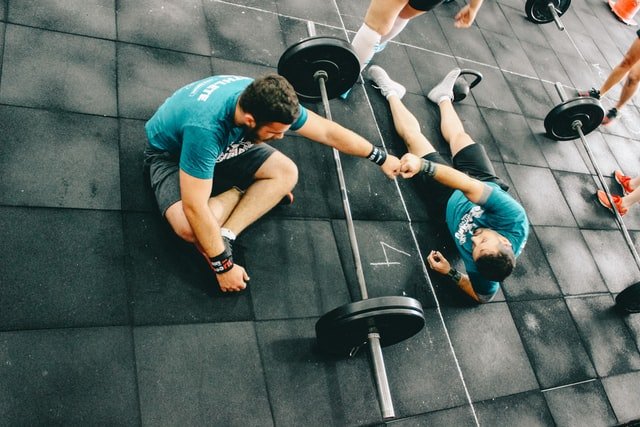In the vast and intricate world of industrial manufacturing and engineering, the importance of small components can never be underestimated. Among these, Muttern—commonly known as nuts—play a crucial role in ensuring the structural integrity and long-term functionality of machinery, infrastructure, and mechanical systems. Their utility extends across industries, from automotive to aerospace, from construction to home improvement. At the heart of premium fastening solutions stands Metall Depot a trusted name in providing quality metal products for professional and industrial use.
This article aims to offer an in-depth understanding of Muttern, their types, applications, materials, and the critical factors to consider when selecting them. Whether you are a professional engineer, a manufacturer, or a hobbyist, gaining insights into this essential component can significantly elevate the quality and reliability of your projects.
Understanding the Basics of Muttern
Muttern are mechanical fasteners with a threaded hole. They are almost always used in conjunction with a mating bolt to fasten multiple parts together. The bolt provides the clamping force, while the nut resists the axial force and prevents loosening.
Although they may appear simple, Muttern are engineered to meet specific tolerances, load capacities, and corrosion resistance. Their designs are tailored to various operational environments and load demands, making them a cornerstone in mechanical assemblies.
The Evolution of Muttern in Engineering
The use of threaded fasteners dates back several centuries, but it wasn’t until the industrial revolution that the standardization and mass production of Muttern began. As machines became more complex and widespread, so did the need for reliable fastening methods.
Today, modern manufacturing and quality assurance processes ensure that Muttern not only meet but exceed the rigorous requirements of modern engineering. With the help of cutting-edge CNC machines, heat treatment processes, and advanced surface coatings, the contemporary Muttern is a marvel of engineering precision.
Types of Muttern and Their Applications
Understanding the different types of Muttern is vital for selecting the right component for your specific application. Let’s explore the most commonly used variants:
1. Hex Nuts
Hex nuts are the most standard type of Muttern. Their six-sided shape offers easy wrenching, and they are typically used in construction, machinery, and automotive sectors. They are ideal for a wide range of general-purpose fastening applications.
2. Lock Nuts
These are specially designed to resist loosening under vibration and torque. There are several types of lock Muttern, including nylon insert lock nuts, all-metal lock nuts, and prevailing torque nuts. They are commonly found in heavy machinery, vehicles, and aerospace.
3. Wing Nuts
Wing Muttern are designed for hand tightening and loosening. With their protruding ‘wings,’ they require no tools, making them ideal for temporary assemblies or components that need regular maintenance.
4. Cap Nuts
Also known as acorn nuts, cap Muttern cover the exposed ends of bolts, providing both safety and aesthetic appeal. They are often used in consumer products, furniture, and where appearance matters.
5. Flange Nuts
Flange Muttern have an integrated washer-like base that distributes pressure over a wider area. This helps in reducing surface damage and increasing grip. They are widely used in automotive and heavy-duty applications.
Materials Used in Manufacturing Muttern
The durability and effectiveness of Muttern depend significantly on the materials used in their production. Different materials are selected based on the environment in which the Muttern will operate.
1. Carbon Steel
Carbon steel is the most commonly used material for Muttern due to its strength, affordability, and versatility. It’s suitable for most indoor and non-corrosive environments.
2. Stainless Steel
For environments with high humidity or chemical exposure, stainless steel Muttern are ideal. They offer excellent corrosion resistance and aesthetic appeal.
3. Brass
Brass Muttern are primarily used in electrical and plumbing applications due to their conductive and corrosion-resistant properties.
4. Nylon
Though not as strong as metal, nylon Muttern are lightweight and corrosion-resistant. They are best suited for applications requiring non-conductive materials.
Industrial Applications of Muttern
Muttern are utilized across nearly every industrial sector. Here are some key areas where their role is indispensable:
Automotive Industry
The automotive sector heavily relies on various types of Muttern to ensure vehicle safety and performance. From securing engine components to assembling suspension systems, Muttern are everywhere.
Construction and Infrastructure
In the construction of buildings, bridges, and towers, Muttern are used to secure steel frameworks, scaffolding, and heavy-duty connections. They ensure structural integrity and resistance to environmental forces.
Aerospace
In aerospace, the demand for lightweight and high-strength Muttern is crucial. Lock Muttern, in particular, are widely used to combat vibrations and prevent loosening during flight operations.
Electronics and Appliances
Miniature Muttern are used in assembling circuit boards, casings, and other components in electronics and home appliances. Their precision helps maintain product reliability.
The Role of Coatings and Finishes in Muttern
One often overlooked aspect of Muttern is their surface coating. The right finish can dramatically improve performance, corrosion resistance, and aesthetic value.
-
Zinc plating offers light corrosion resistance and is suitable for indoor use.
-
Hot-dip galvanizing provides a thick, durable coating for outdoor or marine applications.
-
Black oxide improves appearance and corrosion resistance while offering minimal dimensional changes.
These coatings not only enhance longevity but also improve frictional behavior during tightening.
Factors to Consider When Choosing Muttern
Selecting the right Muttern involves more than just size. Here are critical factors to keep in mind:
1. Load Requirements
Ensure the Muttern can handle the expected tensile and shear forces without failure.
2. Thread Compatibility
Always match the thread type and pitch of the nut with the corresponding bolt.
3. Environmental Exposure
Choose corrosion-resistant materials and coatings if the Muttern will be exposed to moisture, chemicals, or extreme temperatures.
4. Vibration Resistance
In high-vibration environments, use lock Muttern or additional locking mechanisms to prevent loosening.
Innovations in Muttern Technology
Modern technology is reshaping the world of Muttern with advancements like:
-
Self-locking mechanisms that don’t require additional parts.
-
Smart nuts with embedded sensors for load monitoring.
-
3D printing for custom-designed Muttern used in specialized applications.
These innovations are opening new doors for precision and efficiency in engineering and assembly.
Quality and Sourcing: Trusting the Experts
When it comes to sourcing high-quality Muttern, choosing a reputable supplier is essential. Businesses and professionals turn to MetallDepot for dependable and comprehensive fastening solutions. With a wide selection of standard and specialty Muttern, MetallDepot ensures reliability, traceability, and compliance with international standards.
Whether you need bulk quantities for industrial manufacturing or a tailored solution for a specific engineering challenge, expert suppliers like this play a critical role in maintaining product integrity and operational efficiency.
Sustainability in the Manufacturing of Muttern
As industries move toward sustainability, the production of Muttern is also evolving. Manufacturers are focusing on:
-
Recyclable materials like stainless steel and brass.
-
Eco-friendly coatings with reduced toxicity.
-
Energy-efficient production methods that reduce waste and emissions.
These practices not only minimize environmental impact but also align with global green standards and corporate responsibility initiatives.
Conclusion
In the intricate tapestry of modern engineering and industrial design, Muttern may seem like a small thread, but they are indispensable. Their role in securing structures, machinery, and systems underlines their significance in nearly every industry. From the humble hex nut to advanced aerospace-grade variants, Muttern offer versatility, reliability, and performance.
Choosing the right type, material, and supplier can make a substantial difference in your project’s success. With quality solutions available from industry leaders like MetallDepot, professionals can rely on precision-engineered Muttern that stand the test of time.
In a world where every detail matters, investing in the right fasteners is not just about function—it’s about building trust, durability, and excellence, one nut at a time.








